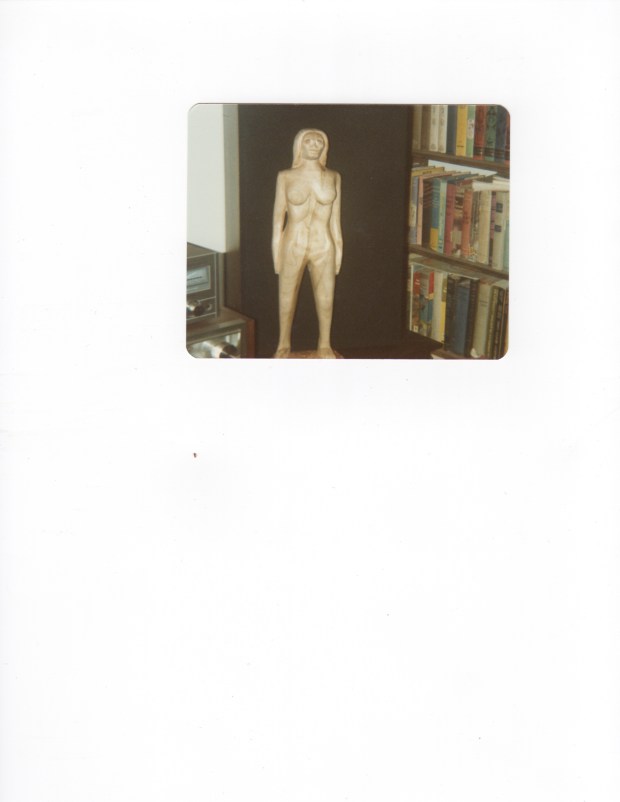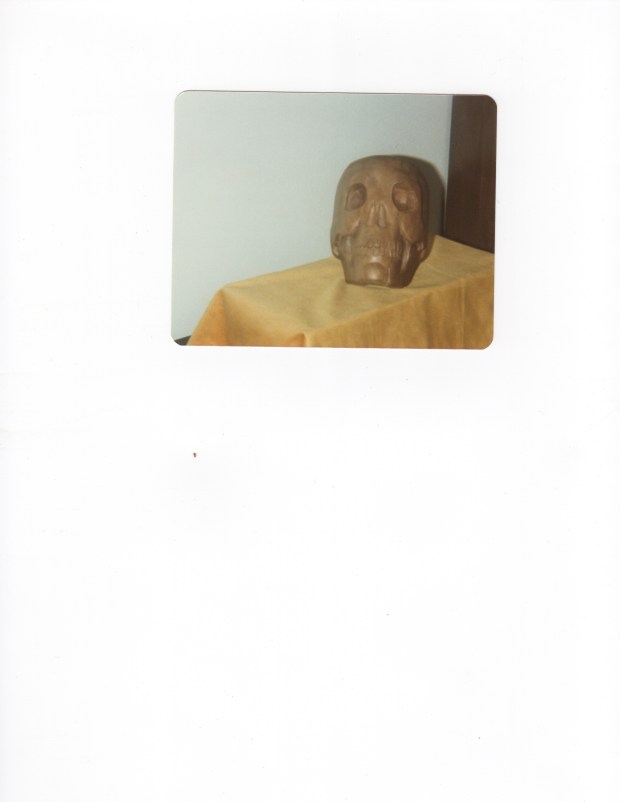Indianola Review Workshop
Posted by c2london in Uncategorized on March 6, 2017
I’ve taken the Indianola Review Workshop twice and both times it was a valuable experience as well as fun. If you have a short story that is done or close to done that you’d value feedback on, this could be the workshop for you. 
Although the workshop format may vary as the method is refined, what happened in the first two workshops is probably a good indicator of what will happen in the next. Each participant uploaded a story to Submittable and we used that as the platform to read and peer review each others’ work. During the second iteration of the workshop, we moved from discussing the stories on the Submittable platform to discussing them in a private Facebook group. This worked much better, as the discussions were easier to follow. The workshop was lengthened to four weeks, the first two for reading and the next two to tackle the individual stories. As in an in person workshop, the Facebook comments usually generated discussion between the participants and eventually a response from the writer. Comments from a few of the staff readers and editors of the Indianola Review were also included.
In the FAQ section of the workshop announcement page, the question is posed about possibility of publication. One of my rewritten stories was published online and another participant’s story was picked for print publication. Another member of our class has since become an Assistant Editor, and numerous stories and participants have gone on to be published elsewhere.
How do I know that last? The Facebook group is ongoing and people do post some of their successes and endeavors. If nothing else, the workshop is a gate to new friendships with writers and potential critique partners. (I have been a critique partner of Joseph Walters, although I met him in another workshop. I also met Jan Elman Stout in a third online class.)
Overall I found this one of the less frustrating platforms and workshops I’ve taken.The behind the scene look at Submittable was helpful. It was a joy to get to read the work of people I otherwise would not have encountered and a humbling experience to see how accomplished many of the participants were. I would recommend the workshop and consider the price very fair for the feedback received.
Although the time and date for the next workshop has not yet been announced, it is worth looking out for this class. In the meantime, read Indianola Review online and think about submitting your work!
Thoughts a Year After Winning The 2016 Dogwood Fiction Prize
Posted by c2london in Uncategorized on February 13, 2017

The Cover
A little over a year ago, I was informed I was a finalist in the Dogwood Literary contest and they wanted to publish my story. I was gratified the story was to be published, but when they told me in April that the story was the fiction prize winner for 2016, I was even happier. Although I had other stories published, I’d long ago given up thinking I’d ever win anything for my writing. When I picked Dogwood to submit to, I had no intention of entering the contest, but since the contest fee was only $10, seven over their normal fee, I figured what the heck? I was hoping that entering might garner a closer read, not necessarily a win.
If this wasn’t the first contest I’ve entered, barring those attached to writing conferences, it was the first in a very long time. Ten years? I wasn’t sure that contests were the way to go. My ultimate goal is to have a book picked up for publication, and I’d read enough places that mentioning you’d won a prize wasn’t impressive to literary agents unless it was a major award.
The day before I was given the go-ahead to announce my win, I had a discussion with my neighbor about luck. She told me about her son’s girlfriend and how she came to know a number of important people who helped her land a prestigious scholarship and position as a summer intern. Later that same day, I spoke to a friend who told us his story of luck. He played football in high school. I asked if he’d been recruited many places. He said not really, only the local state school had showed interest. This was before the days of heavy recruiting, and he had also decided he wasn’t going to play in college. It just so happened that a recruiter for Dartmouth was in his area, and although this recruiter had ignored my friend’s high school in the past, this time he decided to check it out and asked the coach if he had any players with good enough grades who might make the team. The coach recommended my friend, but he needed to take the SATs—he was from the midwest and had only taken the ACTs. The day this recruiter spoke to him was the last day to have the application for the next SAT testing in the mail. He filled out the application and took it to the post office. When he got home, he realized he’d forgotten to stamp it.
He called the post office, which was closed, and spoke with an employee who agreed to dig through the mail, find the letter, and affix a stamp. How was that not luck? So many steps could have gone wrong, something as small as the phone not being answered, or the person who answered in a hurry to go home, or someone who did not care about a kid and his college career. His life might have been different, because he did go to Dartmouth and play football and later received an advanced degree from Harvard.
This win was luck for me as well. I might not have entered, or I might have entered a different story. But part of it is making your own luck, or more exactly, propelling your luck along. I’d read the judge’s books and many years ago I met an editor who had published him in a national magazine well known for its fiction. His story was about a pregnant woman and this editor was pregnant. He probably didn’t know that, and maybe she wasn’t pregnant at the time the story was accepted but was contemplating it. Could the editor’s pregnancy have influenced her reading of his story? And picking it to publish?
When I first started writing back in the eighties, I took a workshop with the writer/judge. I got a B. I saw him around town every once in awhile but then heard nothing about him. I knew he was of a certain age, and I thought possibly that would make the story I entered appeal to him. I’m quite sure he didn’t have the slightest idea who I was. I used a different name back when I was in his class, and the submissions for this contest were blind. There was no way he could have known I’d been a student. I did disclose that I’d taken his workshop to the contest officials. The rules stipulated you couldn’t have a “substantial relationship” with the judge, and other than rejecting a story or two of mine for the journal where he is currently the fiction editor, I had no relationship with him.
It is now more than a year since I was notified I was a finalist. Has it changed my life? Other than falling victim to the assumption that if you win one, you have a chance to win another, no. No offers to read my novel have come my way and mentioning the win in a cover letter for other submissions hasn’t seemed to sway many editors.

Table of Contents
Overall, the win was a vote of confidence, and it is a nice addition to biographical notes, but I know I need to immerse myself in my writing if I’m to make more progress toward my goal of a published novel or publication in a “prestigious” journal.
And I know if I want to make my own luck again, I need to produce more pieces to circulate than the current three I have out.
Wish me luck.
Grrrr.
Posted by c2london in Uncategorized on March 12, 2016
WordPress has changed from when I blogged two years ago. And really, I’m not sure it is easier to use. I just now was trying to find a specific post so I could update it and had to scroll through every post I’d ever written, and I’ve had three blogs. One was very short lived, this one, and one on a totally different topic. I couldn’t find the post I wanted.
I was going through my posts to check to see if I had links to stories on the web since I just found another broken link and the journal has no archives. I found a second story that the link was broken and again, but this time I found the archives. It took me awhile to find the entry, and for awhile I was wondering if I’d made up that first internet publication, but finally I found it. Here is the corrected link. http://tclj.toasted-cheese.com/2005/5-3/hazards-of-light-by-c-a-cole/
Eckleburg Workshops
Posted by c2london in Uncategorized on March 4, 2016
My next venture was into a class with a title something like Thirty Stories in Thirty Days. I figured this was to write flash. I hadn’t written much flash in the last year or two and my stockpile was very low. So it seemed like a good idea as well as a challenge. The leader for this class was friendly and enthusiastic but not very involved.
At the start of the week, he posted the assignments for that week with an introduction. Some of the ideas were truly fun, some odd, and a few things I just didn’t want to do. But no worries because you could reuse one of the prompts to keep up with your stories if you wanted. The most useful exercise involved writing from posted photos with a link to random photos of the day. This exercise worked well for me since I could check a large number of interesting and odd photos until one struck me. If I could remember the link to this page, I would go back to it and use it. Alas, it seems to be lost. Although I found others on the web, none of them featured photos as interesting.
Although the exercises for this class were interesting, I did not find the overall class very enjoyable and eventually quit. The enrollment was small. As for interaction in the form of comments on the mostly very short pieces posted, the only people who commented were two participants I already “knew” from the One Story classes. I did start out commenting on other people’s stuff, but when the favor is not returned, I feel like my comments are not welcome and my effort is wasted, so I stop.
A friend from my next foray into workshops reported that he signed up for a class through this site and had a similar experience. Most of the participants had quit before the class was finished. Because there was little back and forth between you and anyone else in the class, it is hard to rate the platform, but for a small class it appeared to be adequate. The group does offer many interesting sounding classes such as Create a Book Trailer and their prices are reasonable.
A Short Series on Various On-line Workshops
Posted by c2london in Online and multimedia learning, Writing on February 19, 2016
 Since I stopped regularly blogging at the end of 2014, I’ve taken numerous online writing courses/workshops from a number of sources. Possibly my thoughts on some of the classes would be of interest or use to other writers. I will present each class in chronological order and follow up with a post on which I found most helpful and why.
Since I stopped regularly blogging at the end of 2014, I’ve taken numerous online writing courses/workshops from a number of sources. Possibly my thoughts on some of the classes would be of interest or use to other writers. I will present each class in chronological order and follow up with a post on which I found most helpful and why.
Early in 2015 I did a workshop with Donald Maass through the Womens’ Fiction Writers Association. Improvements were made in the platform used for this workshop last year so it was a little easier to keep track of what you’d read by whom. Mr. Maass did manage to comment on most people’s assignments, too. Each year has a slightly different focus, so it is worth retaking each year.This is the information directly from the WFWA website:
Some manuscripts sparkle and gleam. What not only catches the eyes of agents and editors but holds them in thrall all the way through? What signals “commercial” to industry types? How can you give your project that radiance without compromising its integrity?
Topics will include:
High concept elements that don’t feel cheap.
Why readers really fall in love with protagonists.
Story worlds we don’t want to leave.
Entertaining versus illuminating.
Voices we hear versus voices we ignore.
This is a hands-on workshop with five writing assignments spread over two weeks. Presented by New York literary agent and teacher Donald Maass, author of Writing the Breakout Novel, Writing the Breakout Novel Workbook, The Fire in Fiction and Writing 21st Century Fiction.
Registration open from February 15 through March 10.
This year’s workshop runs from March 14-March 26. The cost is a reasonable $45 but you do have to first belong to the association. Dues for that are $48.
Here is the link to join: http://womensfictionwriters.org/about.php
Finding Recent Titles that Otherwise I’d lose
Posted by c2london in Flash Ficion on January 22, 2016
Today I found a call for submissions for a podcast where previously published work is considered. I liked this idea and looked for what I had that met the 800 word limit. (It did say longer might be considered.) Because I wasn’t sure if the copy of the two pieces I identified as ones to send matched what had been published, I checked online. While doing this, I realized I apparently hadn’t seen the final publications. To my surprise, on Tattoos Across the Universe there were three positive comments. This just reminds me of the potential benefits from online submissions. Someone may actually read them! And comment!!! People could read my stories in print publications, but I’m unlikely to ever know.
http://www.sirenlitmag.com/latest-pieces/tattoos-across-the-universe-by-ca-cole
Unfortunately, the other piece, Trip to Oz in NonBinary Review, requires a special app. I downloaded it once but couldn’t get it to work. I’ll have to try again but don’t think I’m able to link it here. Maybe if it is accepted for the podcast….

Konovalenko gem carving. Denver Museum of Nature and Science
Looking for my Work
Posted by c2london in Uncategorized on September 8, 2015
Sometimes I forget that I published a piece in a journal. Sometimes I wonder if I’m remembering wrong, especially when I search the archives of said journal and nothing shows up. When that happened today I googled away and after about six attempts, I finally got the piece to show up.
Now I’m posting the link to the story so I don’t lose it again.
http://riverlit.com/read/100words.php?postid=The-Color-of-Hope&aind=40
Celia: 8/19/53 to 3/9/91
Posted by c2london in Friendship on March 9, 2015
 My friend Celia died young. She left two young daughters as well as a number of good friends. She had many varied interests in life. She was a wood carver/sculptor. I once said to her that she was lucky because with sculpting vs writing, she could leave her creations out and people would notice them. She laughed and said hardly anyone ever said anything about them.
My friend Celia died young. She left two young daughters as well as a number of good friends. She had many varied interests in life. She was a wood carver/sculptor. I once said to her that she was lucky because with sculpting vs writing, she could leave her creations out and people would notice them. She laughed and said hardly anyone ever said anything about them.
Today is the 24th anniversary of her death, and in honor of her talent and lack of recognition I am posting two photos of wood she sculpted.
 Shortly after the WFWA workshop ended, I started the first of three One Story workshops. The first, Write a Short Story with Hannah Tinti presented a method to write a complete short story in a few days. It was fun, although I think it might have worked better if you had characters or a situation in mind before you started. I did end up with a complete but short piece, although I’m not sure how much I really like it.
Shortly after the WFWA workshop ended, I started the first of three One Story workshops. The first, Write a Short Story with Hannah Tinti presented a method to write a complete short story in a few days. It was fun, although I think it might have worked better if you had characters or a situation in mind before you started. I did end up with a complete but short piece, although I’m not sure how much I really like it.
